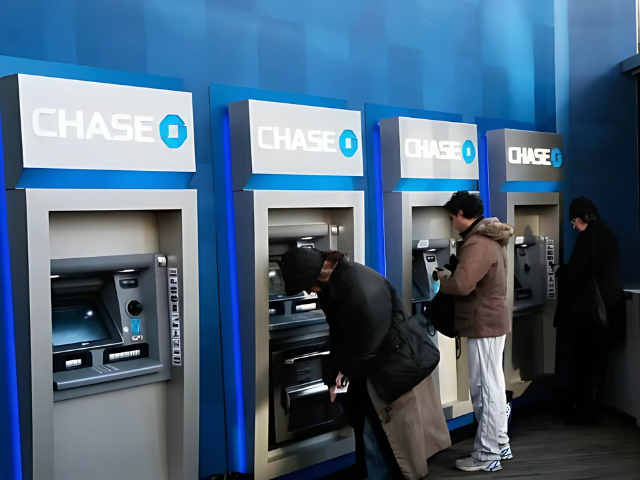JPMorgan Chase & Co. has filed multiple lawsuits against customers who allegedly exploited a viral glitch in its ATMs to withdraw large sums of money from deposited checks before they cleared.
The lawsuit was filed Monday in Houston, Miami and Los Angeles and targets two individuals and two companies believed to have illegally retained more than $661,000.

The glitch, which occurred in late August, allowed users to deposit large checks through ATMs and withdraw funds almost immediately, regardless of whether or not the checks ultimately bounced.
In one notable incident, on August 29, a Houston man allegedly withdrew $290,939.47 from a $335,000 check deposited with him by an unidentified masked person.
JP Morgan reported that the check was declined just a few days later, on September 4th.
The lawsuit filed by the nation’s largest bank seeks not only the return of funds fraudulently withdrawn, but also additional costs related to the fraud.
The bank emphasized that these civil actions do not preclude the possibility of criminal charges against the defendants.
JPMorgan, headquartered in New York, actively pursues these cases, working with law enforcement to hold individuals accountable.
“Fraud is a crime that affects everyone and undermines trust in the banking system,” said JPMorgan spokesperson Drew Pusateri.
Check fraud is classified as a federal crime in the United States, and banks such as JPMorgan allow customers to access a portion of a check’s value before it clears, but recent incidents have raised serious concerns. .
Last month, the Wall Street Journal reported that JPMorgan was investigating thousands of potential check fraud cases related to the glitch.
Despite the increased adoption of digital payment methods, paper checks remain a popular payment method in the United States, even though many European countries phased out paper checks two decades ago. .
Checks have been virtually abolished in countries such as the UK and the Netherlands, highlighting the disparities in payment methods between regions.

